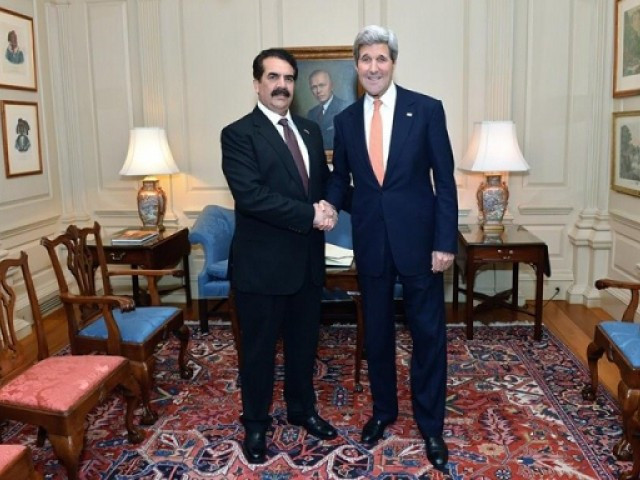Out of the freezer
An easing of tensions to the west would be welcome, because the east looks as stuck as it ever was


The Kashmir issue is a case in point and the recent flare-up prior to the visit by the Indian prime minister to the state, which has seen six militants and 11 Indian security forces killed. The US has cautioned against making any assumptions linking Pakistan to the incident, the US State Department spokesperson saying it would be unwise to jump to any conclusions in response to a question from a journalist seeking to implicate Pakistan. She unequivocally rejected the premise of the question.
Following hard on the heels of the Kashmir incident there was an event of very considerable import — with potentially far-reaching implications. The Americans have handed to Pakistan a leader of the Tehreek-e-Taliban Pakistan (TTP), Latifullah Mehsud, whom they captured in Afghanistan last October. The capture incensed the Afghan government of the time, and the current Afghan government has not been involved in the transfer either — which may not please it any more than its predecessor. Assurances are said to have been given by Pakistan as to the “humane” treatment of Mehsud, but the Americans are going to be watching closely as to where he goes — or does not go — once in Pakistani hands. Potentially this is a major confidence-builder and if Pakistan ‘handles’ Mehsud to the satisfaction of his erstwhile captors, there will be dividends, no doubt. But if he disappears into the undergrowth to reappear red in tooth and claw and once again battling on the side of the extremists, the dividends will be negative rather than positive.
Thirdly, in this fast-moving narrative there is the death of Adnan el Shukrijuma in South Waziristan Agency. He had been indicted by the US for his alleged involvement in a plot to bomb the New York subway system. He was in hiding to avoid Operation Zarb-e-Azb but died along with several of his accomplices. A Pakistan soldier also died. Shukrijuma was a member of the core of the al Qaeda leadership, and the Americans will be pleased to see him removed from play.
Taken together, these three events by themselves aggregate to a shift away from the confrontational style of engagement that has characterised the relationship between our two countries since the dark days of Raymond Davies and the 2011 Salala incident, which saw 24 of our soldiers killed by American gunship helicopters.
There is a delicate balance in bilateral and trilateral relations with Pakistan, India and the US each at a point on the triangle. Outside the closed geometry, there is Afghanistan and China, both of whom are closely interested in the nature of the relationship between the three countries. India is experiencing a nationalist resurgence under the new Modi government and America, led by a weakened president, is looking to a success in foreign policy that may bolster the Democratic Party fortunes among the electorate back home. Tensions on the Line of Control refuse to abate and the India-Pakistan rivalry continues to bleed-out what little chance of rapprochement there was. An easing of tensions to the west would be welcome, because the east looks as stuck as it ever was.
Published in The Express Tribune, December 9th, 2014.
Like Opinion & Editorial on Facebook, follow @ETOpEd on Twitter to receive all updates on all our daily pieces.















COMMENTS
Comments are moderated and generally will be posted if they are on-topic and not abusive.
For more information, please see our Comments FAQ